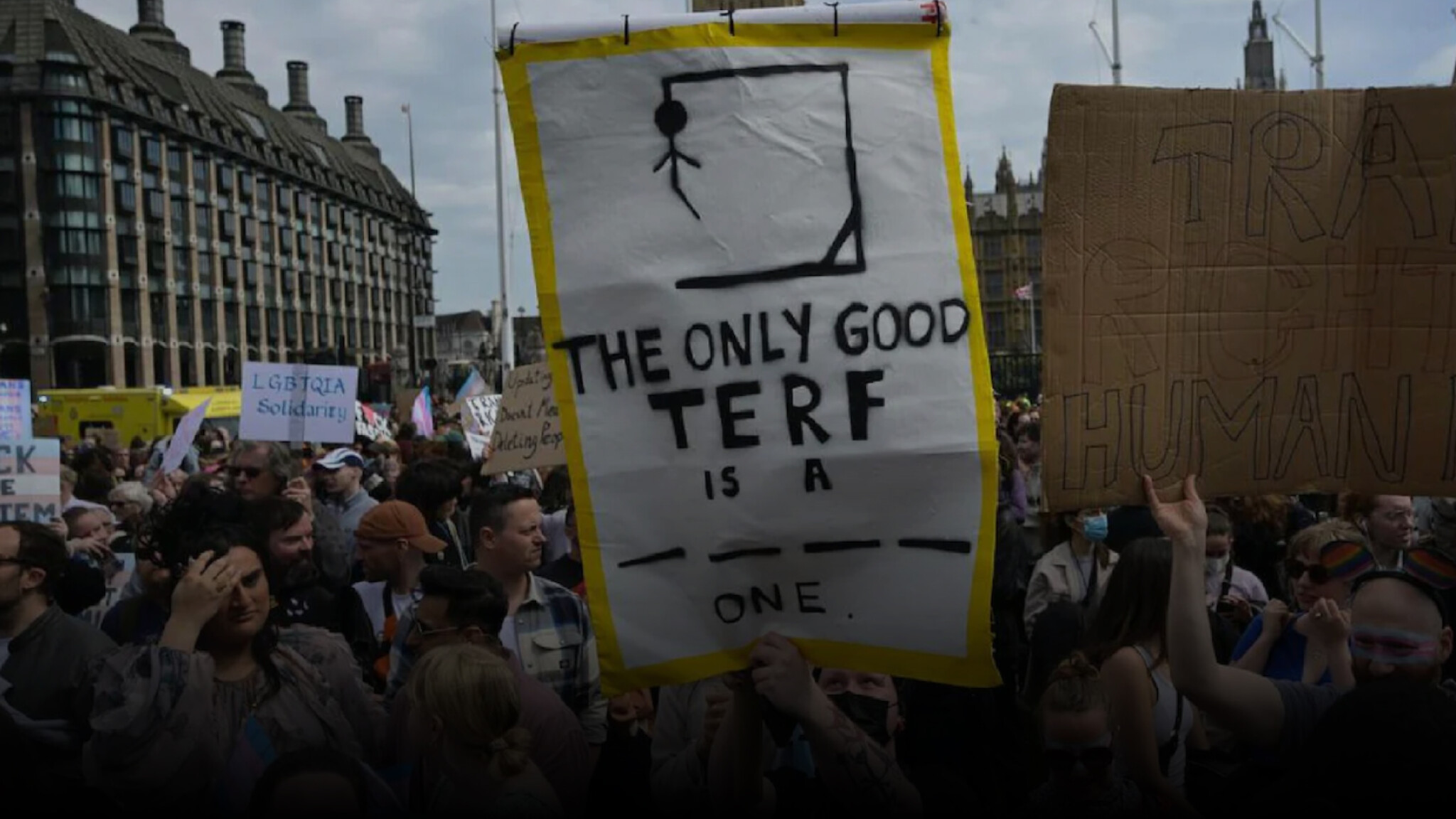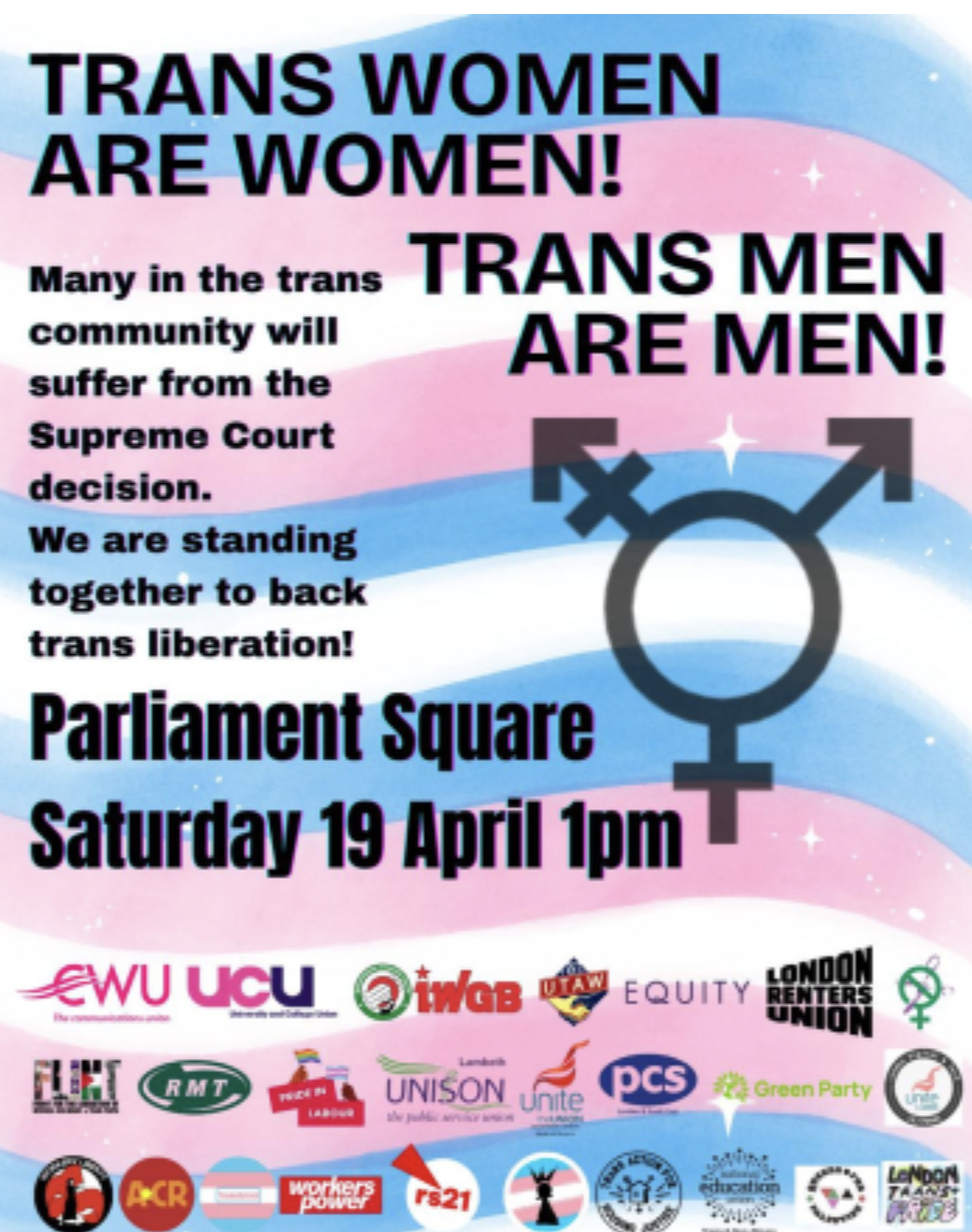
In a landmark judgment on 16 April, the UK Supreme Court unanimously ruled that the legal definition of a woman is based on biology. The protected characteristic of “sex” under the 2010 Equality Act refers to “biological sex”, not “acquired gender” via GRCs (Gender Recognition Certificates) and self-identification.
The Equalities and Human Rights Commission has released interim guidance on how organisations should interpret the ruling. The primary concern is single-sex spaces in “workplaces and services that are open to the public”:
- trans women (biological men) should not be permitted to use the women’s facilities and trans men (biological women) should not be permitted to use the men’s facilities, as this will mean that they are no longer single-sex facilities and must be open to all users of the opposite sex
- in some circumstances the law also allows trans women (biological men) not to be permitted to use the men’s facilities, and trans men (biological woman) not to be permitted to use the women’s facilities
- however where facilities are available to both men and women, trans people should not be put in a position where there are no facilities for them to use
- where possible, mixed-sex toilet, washing or changing facilities in addition to sufficient single-sex facilities should be provided
It may seem extraordinary to some that we find ourselves here. For Women Scotland spent seven years fighting in court to define “women” and “sex”. The grassroots organisation had to appeal to the highest court of law in the land in order to confirm biological reality, and vast sums of public and private money were spent in the process. It illustrates how far gender ideology has entered the public square. For years we have been pressured by politicians, governing bodies, and institutions into accepting that sex is simply “assigned at birth” in a nominal fashion, but can be changed according to one’s feelings. Hormones and surgery are “gender-affirming” and womanhood is a medical diagnosis, reducible to an administrative decision on a piece of paper. Gender-critical feminists have been bullied, harassed, and demonised for the heresy of denying that transgender women are exactly the same as women.
About 51% of the population in England and Wales is female. The Office for National Statistics 2021 census estimated that 0.54% of people aged 16 or over claim to have a different gender identity from their sex (this includes “trans man, trans woman, non-binary, and all other gender identities”). 0.10% identified as trans women.
Most women who believe in sex don’t take issue with the “existence” of transgender women, which is a criticism commonly levelled at them. The tension lies in the slogan “transwomen are women”. This is the linguistic conquest of identity, a bullying tactic that forces women to cede ground on a false premise by stating it as if it were irrefutably true. By principle it leads to the collapse of single-sex spaces, which are designed to protect women’s privacy and safety.
The tension lies in the slogan “transwomen are women”. This is the linguistic conquest of identity, a bullying tactic that forces women to cede ground on a false premise by stating it as if it were irrefutably true. By principle it leads to the collapse of single-sex spaces, which are designed to protect women’s privacy and safety.
The first time I read this slogan, I was in a society meeting at Cambridge about eight years ago. One student promptly opened her laptop to take minutes and I spotted the sticker. I thought it sounded like a pastiche of a Wittgensteinian riddle and decided it was oddly fatuous. Even from a hyperliberal position, it doesn’t make sense. What happened to the “lived experience” at the heart of identity politics? Not only does the slogan eradicate the experience of biological women, it vitiates that of transgender women – the very group it sets out to defend. I cannot possibly know what it is to be transgender, having never felt angst over my gender or undertaken measures to transition. I will never know what for some must be a painful and confusing experience. Likewise, a transgender individual cannot possibly know what it is to be me, having never experienced girlhood or female puberty, for example.
Soon I saw these stickers plastered everywhere, coercing students into accepting that black is white and up is down. Identity is sacred and inviolable – until it comes to women.
*
Who could respect the subsequent flip-flopping from Labour MPs who are now lurking behind the Supreme Court judgment – some of them conspicuously silent on the matter, or else vaguely welcoming “clarity”?
Downing Street announced that Sir Keir Starmer no longer believes that trans women are women following the ruling. But in 2022 he told the Times: “A woman is a female adult, and in addition to that trans women are women, and that is not just my view — that is actually the law.”
This is congruent with his previously stated position. Appearing on Andrew Marr’s BBC show in 2021, he was asked if it was transphobic to say that only women have a cervix after the then Labour MP Rosie Duffield found herself embroiled in a “transphobe” Twitter feud. She had liked a tweet by Piers Morgan who had criticised a news story from CNN about cancer screening for “individuals with a cervix”. Starmer concluded with moral authority: “Well, it is something that shouldn’t be said. It is not right.” He continued: “We reduce what is a really important issue to these exchanges on particular things that are said. The trans community are […] the most marginalised and abused of many, many communities, and we need to make progress on the Gender Recognition Act”.
That same year, David Lammy, then Shadow Justice Secretary, claimed incorrectly in an LBC interview that biological men could have a cervix “following procedures and hormone treatment and all the rest of it”. And, let’s not forget, in 2023 Starmer claimed that 99.9% of women “haven’t got a penis”.
The Prime Minister now finds himself between a rock and a hard place. Those who fought for biological sex disdain his moral cowardice and know his position is inauthentic; those who reject biological sex see his verdict as a heinous betrayal. Pink News bristles with indignation: “How self-described ‘proud ally’ Keir Starmer turned his back on the trans community”.
Four-and-a-half years ago, the then leader of the opposition, Sir Keir Starmer, took to the podium at the PinkNews Awards and told the LGBTQ+ community that there was a “desperate need” to reform the Gender Recognition Act (GRA) and to introduce self-ID for trans people.
Fast-forward to 2025 and Starmer apparently no longer even believes that trans women are women.

The public fallout from the Supreme Court ruling has been dramatic. On Saturday 19 April, thousands of trans rights activities rallied in Parliament Square for an emergency demonstration.

Certain elements of the protest were perplexing, including the introduction of Palestine. Protestors chanted: “One struggle, one fight, Palestine, trans rights”.
Protesters in London chant “One struggle, one fight! Palestine, trans rights!”
— Laura Powell (@LauraPowellEsq) April 19, 2025
Beyond parody.pic.twitter.com/4Oh0KF2hml
Gay and transgender people face persecution in Palestine. Why are activists criticising LGBT rights in the UK and co-opting Palestine for political clout, all the while ignoring this fact? It speaks to the madness of crowds: performative activism based on in-group mentality, rather than critical thinking.
Along with the predictably vague “Smash Fascism” signs, protestors wielded placards proclaiming “trans rights are human rights”. These set up a strawman and portray gender-critical feminists as persecutors out to attack rather than defend. Preserving women’s rights does not mean disregarding “human rights”, and the recent clarification does not negate the legal protections afforded to transgender people under the Equality Act. Debbie Hayton goes into more detail here, indicating that the “EHRC is mindful of trans people’s needs”:
It acknowledged that ‘trans people should not be put in a position where there are no facilities for them to use’ and called for the provision of ‘mixed-sex toilet, washing or changing facilities in addition to sufficient single-sex facilities’.
One measured letter in the Telegraph makes the point:
Women have a right to be protected and trans women should also have that right, but not at the expense of women feeling unsafe in their own spaces.
If trans women feel unsafe using male facilities then surely they must know what it feels like for women who feel unsafe. Let’s find a way forward to accommodate all in our society.
“Feminism is the refusal to define a woman” was another mindboggling sentiment daubed on cardboard and waved around in the air.
Others focused on perceived eradication: “We will not be erased”, “Respect existence or expect resistance”, and “You can’t erase our existence”. The irony is breathtaking. A group decides that the identity of half the population can be appropriated and female-only spaces should include biological men, then silent dissenters and complain about erasure.
Protestors were guilty of criminal damage including the defacement of seven statues, among them that of Millicent Fawcett. Nothing screams “women’s rights” like vandalising a monument to one of England’s most famous suffragists.
The woman-hating bile on display has been disturbing. The Telegraph reports that a sign urged TERFS to give themselves a “DIY lobotomy” by stabbing themselves in the eye. Another showed bullet holes on the message: “I will make you listen” . One boasted “I Love Pissin’ on TERFS”. Women are only respected insofar as they submit abjectly. If not, they are threatened with violence.
More sinister yet, two protestors waved signs reading “the only good TERF is a —- TERF”, along with the drawing of a noose. In a protest in Scotland, the government was urged to “bring back witch burning”. I noticed with dismay that some of my old university peers echoed these feelings on social media, calling for physical action to be taken against gender-critical feminists. There is nothing uglier that a bully with a victim complex.
This is by no means an isolated explosion of aggression, either. Just look at the hatred that figures such as Kathleen Stock, Rosie Duffield, and, of course, J. K. Rowling have had to endure by speaking up.
Issuing death threats to women who believe in the reality of their own sex is unreconstructed misogyny, pure and simple. It is regression in the name of progress, violence in the name of peace, and hate in the name of hope.




Comments (0)
Only supporting or founding members can comment on our articles.